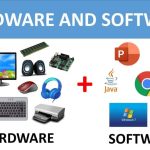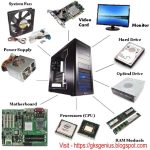The Ultimate Computer Hardware Full Course: Master The Basics And Unlock Your Tech Skills!
Computer Hardware Full Course
Introduction
Welcome, readers, to this comprehensive course on computer hardware! In today’s digital age, understanding the components that make up a computer system is crucial. Whether you are a tech enthusiast, a student pursuing a career in computer science, or simply curious about how computers work, this course will provide you with a solid foundation in computer hardware. In this course, we will explore the various components of a computer system, their functions, and how they work together to execute tasks. So, let’s dive in and discover the fascinating world of computer hardware!
3 Picture Gallery: The Ultimate Computer Hardware Full Course: Master The Basics And Unlock Your Tech Skills!
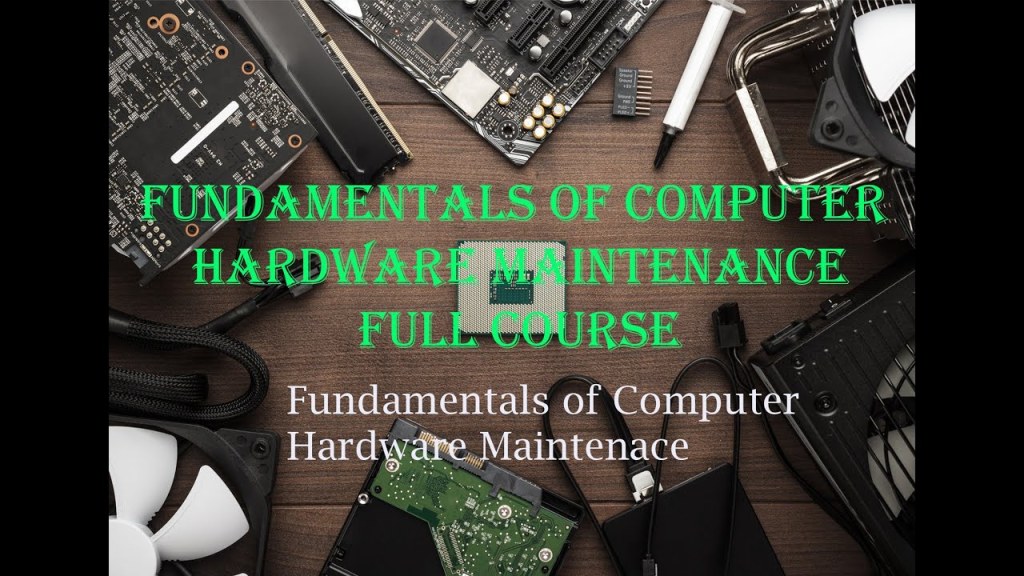
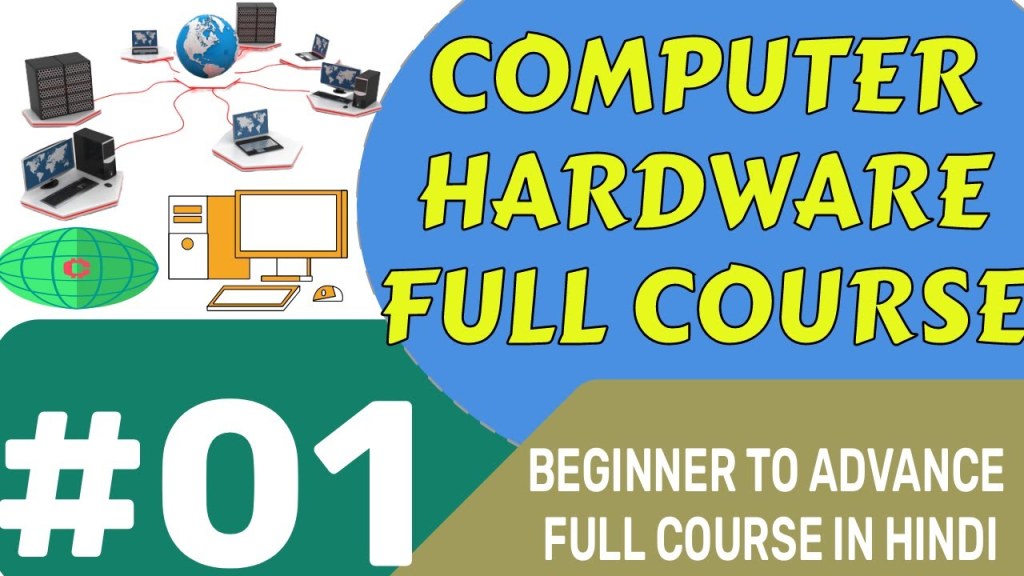
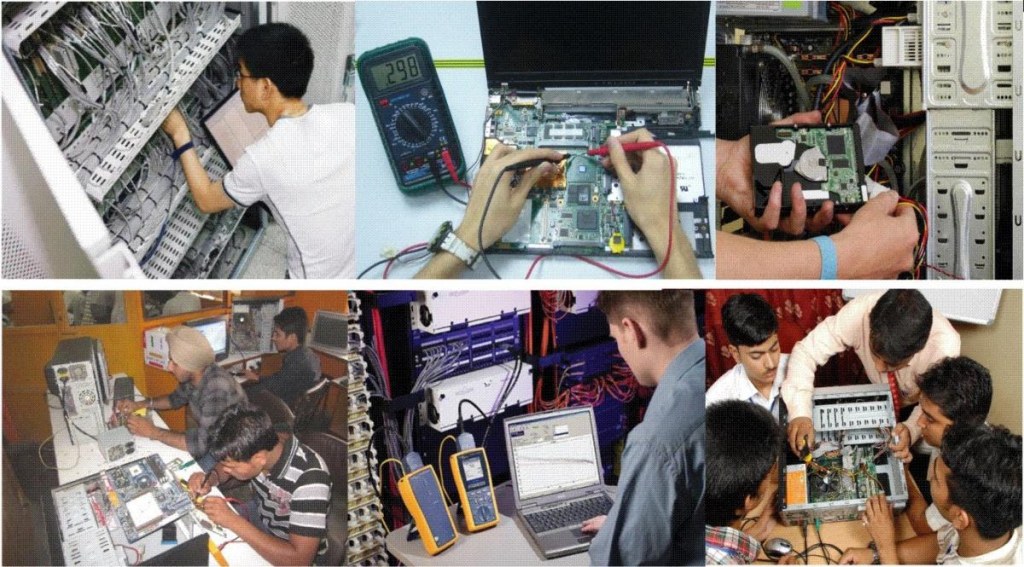
Table of Contents
In this course, we will cover the following topics:
What is Computer Hardware?
The Role of Computer Hardware
The History of Computer Hardware
The Basic Components of a Computer System
The Central Processing Unit (CPU)
Memory and Storage Devices
Input and Output Devices
Motherboard and Expansion Cards
Power Supply Unit (PSU)
Computer Networking
Computer Hardware Maintenance
Future Trends in Computer Hardware

Image Source: ytimg.com
What is Computer Hardware? *
Computer hardware refers to the physical components that make up a computer system. It includes the tangible parts that you can see and touch, such as the central processing unit (CPU), memory modules, hard drives, and input/output devices. These components work together to enable the execution of tasks and the processing of data. Without computer hardware, software alone would not be able to function.
The Role of Computer Hardware
The role of computer hardware is to provide the necessary resources and capabilities for a computer system to operate effectively. It allows users to perform tasks, run software applications, and store and retrieve data. Computer hardware also determines the performance and capabilities of a computer system, including its processing speed, storage capacity, and graphics capabilities.
The History of Computer Hardware

Image Source: ytimg.com
The history of computer hardware dates back to the early 19th century with the invention of the first mechanical computers. Over the years, advancements in technology have led to the development of more sophisticated and powerful computer hardware. From vacuum tubes to transistors, integrated circuits, and microprocessors, computer hardware has evolved significantly, becoming smaller, faster, and more efficient.
The Basic Components of a Computer System
A computer system consists of several basic components that work together to execute tasks. These components include the central processing unit (CPU), memory modules, storage devices, input devices, output devices, and the motherboard. Each component has a specific function and contributes to the overall performance of the computer system.
The Central Processing Unit (CPU)

Image Source: nielit.gov.in
The central processing unit (CPU) is often referred to as the brain of a computer system. It is responsible for executing instructions and performing calculations. The CPU comprises two main components, the control unit and the arithmetic logic unit (ALU). The control unit manages the flow of data and instructions, while the ALU performs mathematical and logical operations.
Memory and Storage Devices
Memory and storage devices play a crucial role in storing and retrieving data. Random access memory (RAM) provides temporary storage for data and instructions that are currently being processed by the CPU. On the other hand, storage devices, such as hard disk drives (HDDs) and solid-state drives (SSDs), provide long-term storage for files, programs, and operating systems.
Input and Output Devices
Input devices allow users to provide data and instructions to a computer system, while output devices display or present the processed information. Common input devices include keyboards, mice, and scanners, while monitors, printers, and speakers are examples of output devices.
Motherboard and Expansion Cards
The motherboard acts as the central hub that connects all the components of a computer system. It provides electrical connections and pathways for data transfer between the various hardware components. Expansion cards, such as graphics cards and sound cards, can be inserted into slots on the motherboard to enhance the system’s capabilities.
Power Supply Unit (PSU)
The power supply unit (PSU) is responsible for providing electrical power to the computer system. It converts the alternating current (AC) from the power outlet into direct current (DC) that is used by the components. The PSU ensures that the computer system receives a steady and reliable power supply.
Computer Networking
Computer networking involves the interconnection of multiple computers and devices to enable communication and resource sharing. Networking hardware, such as routers, switches, and network cables, facilitate the transfer of data between devices over local area networks (LANs) or wide area networks (WANs).
Computer Hardware Maintenance
Proper maintenance of computer hardware is essential to ensure its longevity and optimal performance. Regular cleaning, updating software and drivers, and monitoring system temperatures are some of the maintenance tasks that can help prevent hardware issues and extend the lifespan of the components.
Future Trends in Computer Hardware
The field of computer hardware is constantly evolving, and new advancements are being made regularly. Some of the future trends in computer hardware include the development of faster and more energy-efficient processors, the integration of artificial intelligence into hardware systems, and the emergence of quantum computing.
Advantages and Disadvantages of Computer Hardware
While computer hardware offers numerous advantages, it also has its share of disadvantages. Let’s explore the pros and cons of computer hardware:
Advantages of Computer Hardware
1. Increased Processing Power: Computer hardware advancements have led to faster and more efficient processors, enabling quicker data processing and improved performance.
2. Storage Capacity: Modern storage devices offer vast amounts of storage space, allowing users to store large files, media, and software applications.
3. Versatility: Computer hardware can be customized and upgraded to meet specific needs and preferences, providing flexibility and adaptability.
4. Improved Graphics and Multimedia Capabilities: Graphics cards and other hardware components have enhanced graphics rendering and multimedia capabilities, enabling immersive gaming and multimedia experiences.
5. Connectivity and Networking: Computer hardware facilitates easy connectivity to networks and the internet, enabling communication, collaboration, and access to online resources.
Disadvantages of Computer Hardware
1. Cost: High-quality computer hardware can be expensive, especially when considering the latest advancements and high-performance components.
2. Obsolescence: Technology advances rapidly, and computer hardware can become outdated quickly, requiring frequent upgrades to keep up with the latest developments.
3. Complexity: Understanding and troubleshooting computer hardware issues can be challenging for novice users, often requiring professional assistance.
4. Power Consumption: Powerful computer hardware components consume more electrical power, leading to increased energy costs and environmental impact.
5. Physical Space Requirements: Certain hardware components, such as servers or gaming rigs, require significant physical space, which may be a limitation in certain environments.
Frequently Asked Questions (FAQs)
1. What are the essential components of a computer system?
Ans: The essential components of a computer system include the central processing unit (CPU), memory modules, storage devices, input devices, output devices, and the motherboard.
2. How often should computer hardware be upgraded?
Ans: The frequency of hardware upgrades depends on individual needs and preferences. However, it is generally recommended to upgrade hardware every 3-5 years to keep up with technological advancements.
3. Can computer hardware be repaired?
Ans: Yes, computer hardware can be repaired in most cases. However, it is important to consult a professional technician for complex hardware issues.
4. What is the future of computer hardware?
Ans: The future of computer hardware looks promising, with advancements in areas such as artificial intelligence, quantum computing, and energy-efficient processors.
5. How can I optimize the performance of my computer hardware?
Ans: To optimize the performance of computer hardware, it is important to keep the system clean, update software and drivers regularly, and monitor system temperatures to prevent overheating.
Conclusion
In conclusion, understanding computer hardware is essential in today’s digital world. This comprehensive course has provided you with a solid foundation in computer hardware, covering topics such as the role of hardware components, advantages and disadvantages, and future trends. By acquiring knowledge in computer hardware, you will be better equipped to make informed decisions, troubleshoot issues, and maximize the performance of your computer system. So, take this knowledge and embark on a journey of exploration and innovation in the field of computer hardware!
Final Remarks
Friends, delving into the world of computer hardware is an exciting and rewarding endeavor. Remember to always stay curious, keep up with the latest advancements, and continue learning. However, please note that while this course provides valuable information, it is always advisable to consult professionals for complex hardware issues or repairs. Happy exploring and may your computer hardware journey be filled with success and endless possibilities!
This post topic: Electronics
